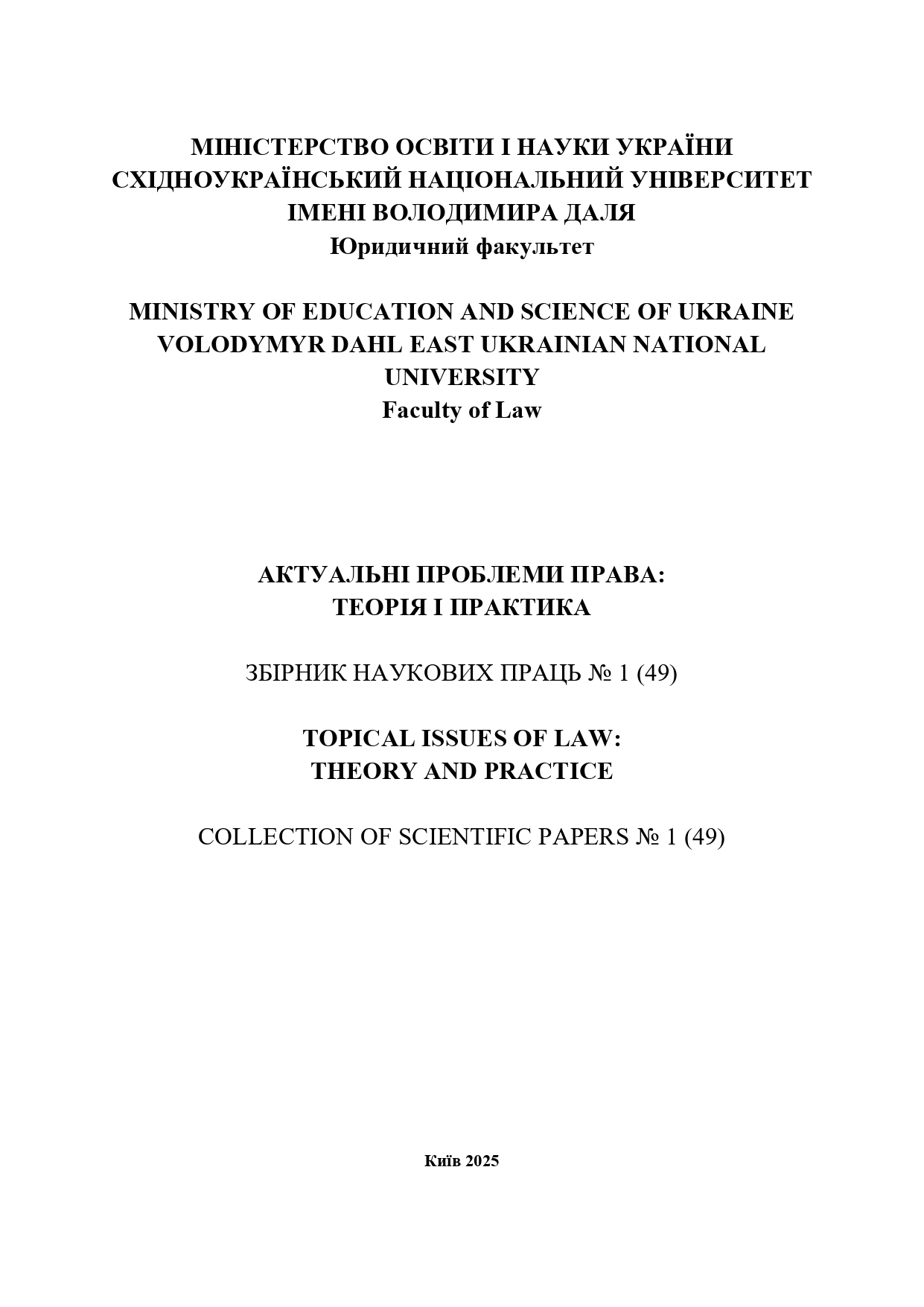CONSUMER RIGHTS PROTECTION IN THE DIGITAL ENVIRONMENT: FROM ROMAN PRIVATE LAW TO EUROPEAN REALITIES
DOI:
https://doi.org/10.33216/2218-5461/2025-49-1-143-152Abstract
This article explores the evolution of consumer
protection mechanisms from the foundations of Roman
private law to modern European legal standards, with
a particular emphasis on challenges posed by the
digital age. The authors argue that key Roman legal
principles — such as bona fides (good faith), liability
for hidden defects, and the protection of the weaker
party in contractual relations — have formed the
methodological basis for contemporary contract and
consumer law. Even though Roman law lacked a
distinct consumer category, its norms established
safeguards for fairness and equity that resonate
strongly in today’s digital environment.
The study addresses the risks arising from the
expansion of e-commerce, online services, and digital
content: phishing schemes, deceptive marketing, and
unauthorized data processing. It highlights gaps in
Ukrainian legislation, including outdated norms,
limited institutional oversight, and weak enforcement
mechanisms for online traders. Particular attention is
given to the 2023 revision of Ukraine’s Law on
Consumer Protection, which introduces definitions for
“digital content” and “digital services,” affirms
consumer rights to quality and safe digital goods, and
establishes new tools such as the e-Consumer Portal and the Verified Vendors System.
A comparative legal analysis is provided,
tracing the reception of Roman principles into
German, French, and Anglo-Saxon legal systems —
including provisions on good faith (Treu und
Glauben), consumer guarantees, and liability for
defects. These principles are shown to underpin EU
digital regulations such as Directive (EU) 2019/770,
GDPR, and the Digital Services Act.
The article concludes with practical
recommendations for the development of Ukrainian
consumer law in the digital context: adopting a
dedicated Law on Digital Consumer Rights; amending
the Law on E-Commerce to clarify digital contracts
and transparency standards; expanding the powers of
regulatory authorities, including the creation of a
rapid-response e-portal for consumer complaints. The
authors emphasize the importance of state
supervision, digital literacy campaigns, algorithmic
transparency, and cooperation with the EU through technical assistance programs.
The study offers a multidisciplinary approach combining legal history, EU law, and digital security challenges. It is intended for scholars, policymakers, legal practitioners, and all stakeholders involved in building effective consumer protection systems in the digital economy.
Keywords: Roman private law, digital environment, consumer rights, online trade, digital fraud, good faith, contract law, legal regulation, institutional responsibility.

